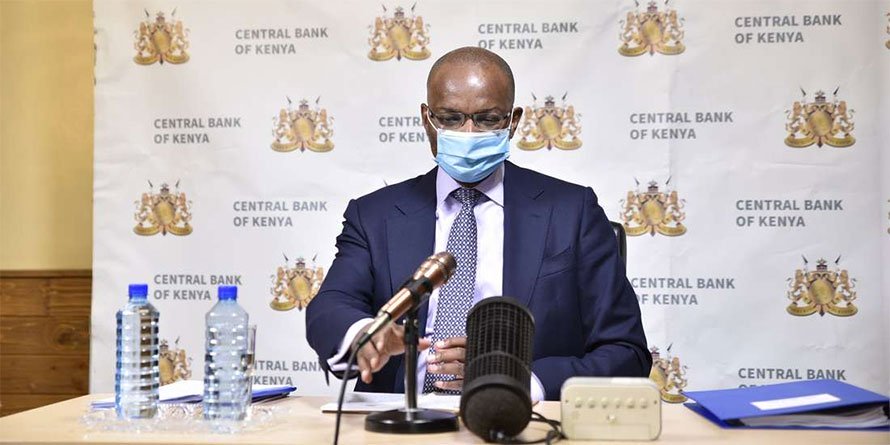CBK Governor Patrick Njoroge. FILE PHOTO | NMG Banks will have to get the approval of the Central Bank of Kenya (CBK) before declaring dividends for the current financial year, according to a new directive by the regulator that is focused on ensuring lenders have enough capital to ride out the Covid-19 pandemic.
The CBK’s directive, confirmed by multiple bank executives, indicates that investors on the Nairobi Securities Exchange will forego dividends running into billions of shillings.
“We have received guidance from CBK asking us to revise our ICAAP (Internal Capital Adequacy Assessment Process) based on the pandemic,” a bank CEO told Business Daily , seeking anonymity for fear of CBK reprisals.
“The regulator now requires that if we are to pay dividends this year, we get approval from CBK on the size of payouts. The boards of banks intending to pay dividends will really have to justify the decision.”
The regulator’s order, coupled with banks’ own risk aversion, looks set to break the lenders’ record of incremental dividend payouts. KCB , Absa , Co-operative Bank , Stanbic , I&M and DTB paid total dividends of Sh33 billion for the year ended December 2019, indicating the size of loss that income-focused investors are staring at this year.
The regulator has given banks up to the end of October to submit their revised capital levels through changes to their ICAAPs.
Governor Patrick Njoroge introduced the capital-measuring process in November 2016, requiring banks to identify, measure and monitor risks and use this as the basis for allocating their funds.
The CBK will now have the final decision on whether or not it agrees with the new capital levels that each bank will submit.
This will then determine if it will endorse any board’s decision to pay dividends.
The CBK relies on ICAAP among other tools to assess whether a bank’s capital levels are adequate and consistent with its business plans, strategies, risk profiles and prevailing operating environment.
The CBK sees Covid-19 as a major disruption that requires banks to change their current models and assumptions by making them more conservative.The move by the CBK mirrors what has happened in markets such as South Africa where the regulator told banks to make capital preservation a priority by freezing dividend payment or bonuses to top executives.The pandemic and public health measures taken to contain its spread has already led to lower bank earnings and erosion of their capital from defaults and provisions for […]
